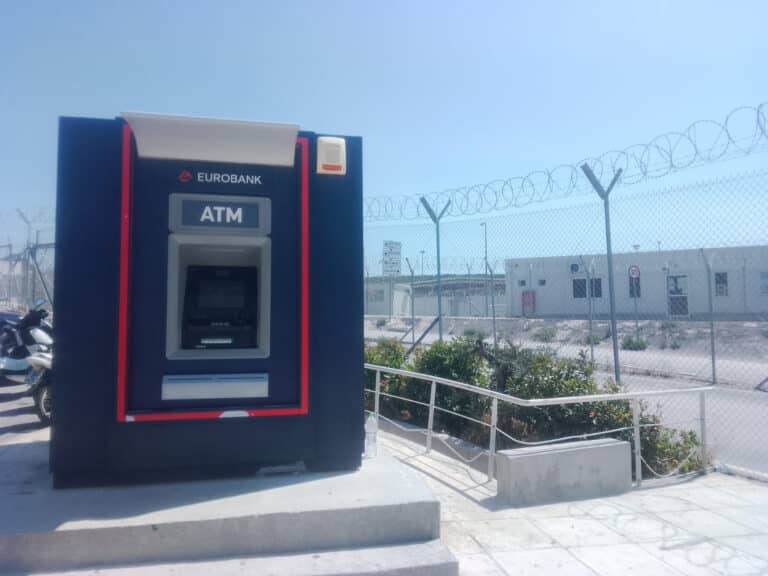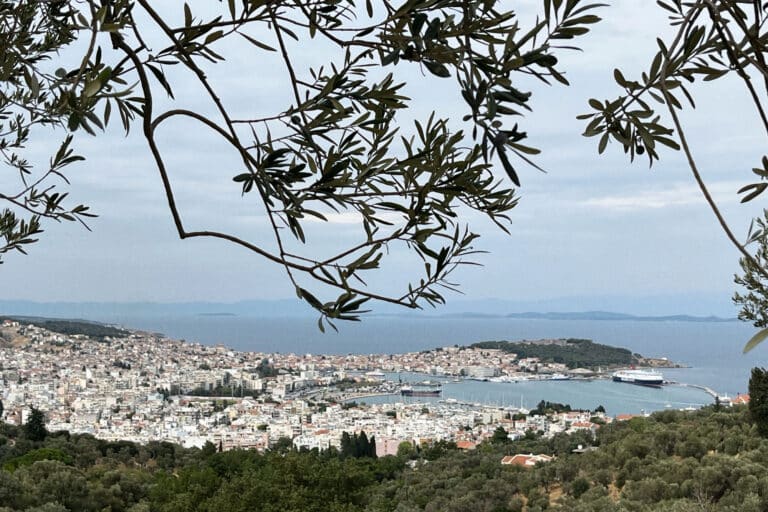The phone starts ringing. Texts and links from news websites come in from various friends. They all say the same thing. Another migrant has been found dead in a police station. You know by heart that this cannot be a coincidence. Migrants don’t die of natural causes in police stations in Greece.
His name was Muhammad Kamran Asiqh. He was a Pakistani national who had lived in Greece for most of his life. He arrived about 20 years ago and had to face all the systemic and social racism and discrimination. He was poorly paid, had uninsured jobs, and shared overcrowded flats with many fellow nationals because no one could afford a flat of their own. Being undocumented meant living in fear of a “random” police check or being attacked by a racist group because of the colour of his skin. It meant being called by a different name, probably Greek, because his real name is hard for the locals to remember. But he has the same goal: he wants to survive. He wants to get a proper job, learn the language so that people can understand him, start his own family, and get papers so that he can live without fear of detention and deportation. This desire is almost the same for all migrants in Greece if you ask what they wish for. And he did. He got married and had three children. He also managed to get his legal papers in 2017. He found a stable and legal job as a delivery driver for a restaurant in Athens. He thought he had made it, but little did he know he hadn’t. Since the late hours of 13 September, he has disappeared.
His friends and relatives started looking for him. No one knew where he was. The officers at the police stations they visited to ask for help sent them away. They didn’t know anything and didn’t have time to deal with a missing Pakistani. They didn’t care. On the night of 20 September, officers at a police station in Nea Ionia, Athens, told them he was being held at the notorious Agios Panteleimon police station. This couldn’t be good. Everyone has heard stories of the torture of migrants in this station. It is also the same police station where, a few months ago, a woman was stabbed to death by her ex-boyfriend at the front door when she was asked to leave after going there to report that her ex was threatening her life. They called the police station, but the officer on duty told them that Muhammad was in detention because he didn’t have his papers but was in good health—the following day, when the relatives reached the police station, Muhammad was no longer there. An ambulance had already taken his lifeless body away. No one could say why. They just told them that Muhammad had died suddenly of natural causes and that there was nothing they could do.
When the family went to the coroner to identify the body, their worst fears came true. Muhammad’s body was covered in bruises. His wrists were swollen, and his feet had “phalange” marks. A notorious method of torture in Greece used by the dictatorship against its political rivals. Muhammad didn’t just die. Mohammed was murdered.
According to information gathered by his family, Muhammad was arrested on 13 September on suspicion of domestic violence. However, after an odyssey of moving between four different police stations, he was initially released on the night of 17 September, only to be stopped again by a police patrol two hours later for an identity check and taken to the Agios Panteleimon police station, where he was again detained on misdemeanour charges. He was tried on 18 September and sentenced to twenty-nine months imprisonment, for which he had to serve four months and return to the police station. According to the police press release that followed the family’s revelation of Muhammad’s death, when he returned to the police station, he fought with other detainees, so they had to move him to the only part of the station where there was no CCTV—a convenient excuse.
After his family published their complaint and pictures of the circumstances of Muhammad’s death, protests were organised in front of the police station, but also in cities across Greece. Protesters, in their turn, faced police brutality and violence. Select media published the news of Mohammad’s death, but most of them reproduced the police narrative. But almost all of them referred to him, not by his name, but by his nationality.
Muhammad is not the first victim of police violence. Muhammad’s name will be added to an endless list of police victims, of people who have lost their lives at police checkpoints and in police stations, of people who the police shot in cold blood in the middle of the street or as they tried to cross borders seeking protection. This list also includes people without names. But they all have something in common. They all belong to minority and marginalised groups. You will never hear of the police shooting a rich person. What’s more, rich and powerful people don’t die of “natural causes” in police stations. They are so lucky.
In a world of exploitation, discrimination and injustice, people will continue to be murdered. And the police, traditionally the main institutional body for the security and continuation of this world, will continue to be the carriers of such acts of murder. From Fergusson in Missouri to Paris in France to Athens in Greece, we must rise up and put an end to police brutality and oppression. And also make sure that we remember the names of all those who have been unjustly murdered.
His name was Muhammad Kamran. He was Alexis Grigoropoulos, Zak Kostopoulos, Christos Michalopoulos, Ebuka Mamasubek, Babacar Ndiaye, and Katerina Goulioni, but also Trayvon Martin, Michael Brown, Mark Duggan, Chris Kaba, and Ibrahima Bah!
In loving memory of Muhammad Kamran Atif.




